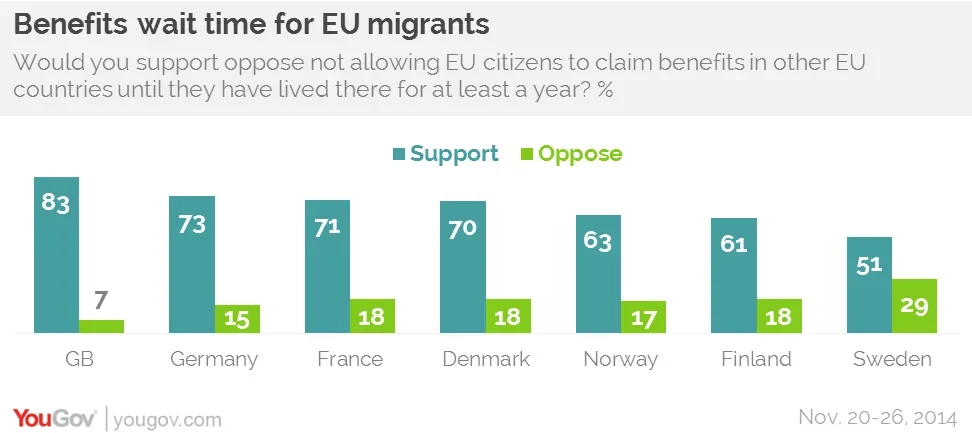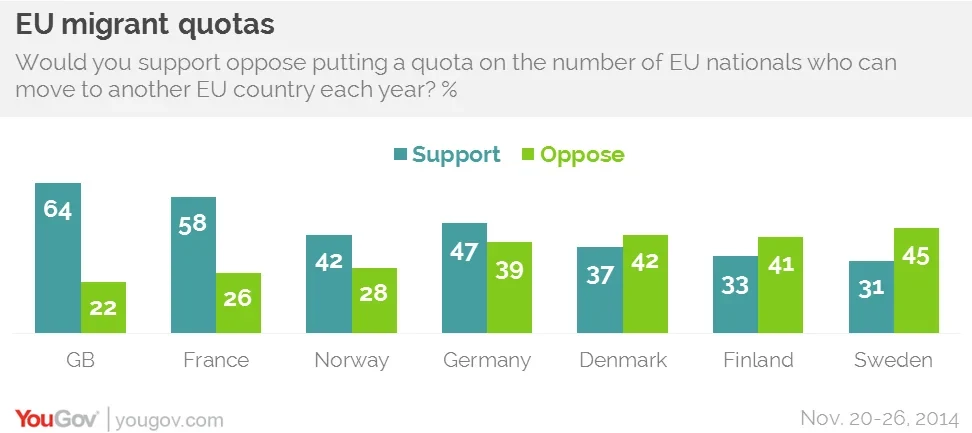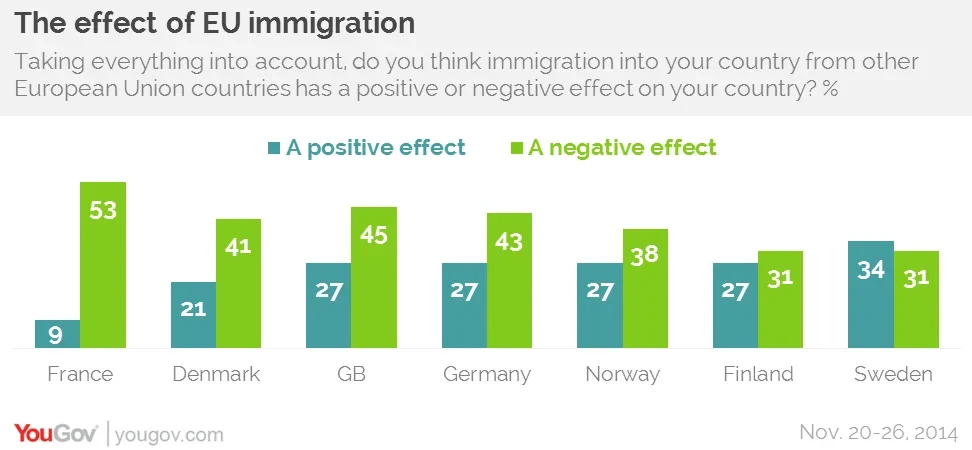Anxiety over EU immigration is not unique to Britain, and neither is the will to do something about it
David Cameron has pledged new curbs on benefits for migrants from the European Union today, including a four-year wait time for out-of-work benefits and a deportation threat if new arrivals don’t find a job within six months. The policies fall short of an outright cap on migration, which some have called for, and echo a policy pursued by the German government – and recently given approval by the European courts – that would prevent jobless EU migrants from claiming welfare benefits. Cameron has said he would push for Britain to leave the EU if Brussels balks at his proposals.
A new YouGov survey reveals that there is wide support for tougher migration rules across several European nations, including France and Germany.
Not allowing EU citizens to claim benefits in other EU countries until they have lived there for at least a year, for instance, receives overwhelming support in nearly all of the seven countries surveyed. The British public is most favourable towards the policy, with 83% for it and only 7% against, but Germans are also overwhelmingly in favour, by 73% to 15%, as are the French, by 71% to 18%.

There is slightly weaker, but still substantial support across all six countries for requiring migrants heading to other EU countries to have a job and the ability to support themselves.
YouGov’s EuroTrack survey tracks public opinion across seven European nations, including six EU member states and another – Norway – which has a free movement agreement with other EU countries as part of the European Economic Area.
Regarding two other, arguably stricter curbs, public opinion is less clear cut. 41% of British people and 42% of French people back a policy that would end the right of citizens of any new EU member states to live and work in other EU countries. Only 24% of Germans are behind this idea.
German people are also less likely to support quotas on the number of EU nationals who can move to another EU country each year. Only 47% of Germans support this, compared to 58% of French people and 64% of British people. However, more Germans support than oppose the policy (as 39% do), which might be surprising as similar policy ideas have been strongly opposed by German Chancellor Angela Merkel, an ardent defender of the principle of freedom of movement within the EU.

On virtually all of the policies tested, people in Denmark, Sweden, Finland and Norway were less supportive of the curbs than those in Germany, France and Britain.
Common concern
Also striking is how similar the British and German people are in their overall evaluations the consequences of EU immigration. In both countries identical numbers (27%) say immigration from other EU countries has had a positive effect, and nearly identical, much greater numbers (43% for Germany and 45% for Britain) say it has had a negative effect.
French people are even more negative about immigration. 53% say the effect of immigration from other EU countries into France has been negative, and just 9% say the effect has been positive.

Interestingly, frustrations with EU immigration do not correlate strongly with a desire to leave the Union altogether. Only in Britain do more people say they would vote “out” than “in” if there were a referendum on their country’s membership in the EU. The pro-EU camps have respective leads of 12 and 29 points in France and Germany.
PA image








